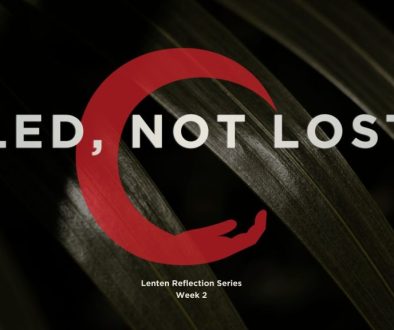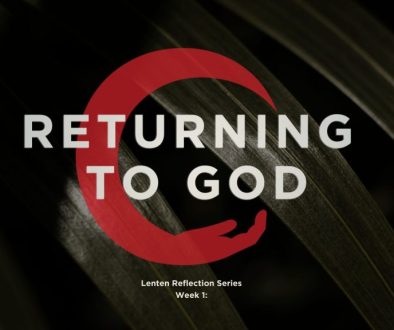40 Days of Sharing: Loving Our Neighbors
As we continue our 40 Days of Sharing, we shift our focus to the heart of Jesus’ mission: Loving Our Neighbors. This week, we explore The Art of Loving and The Art of Welcoming—two essential practices that allow us to embody Christ’s love in our relationships and communities.
(This series is inspired by the book The 9 Arts of Spiritual Conversations by Schaller and Crilly.
The Art of Loving
Love is to be the basis of our efforts of sharing Jesus with anyone. If we do not love when we Notice (Art 1), Pray (Art 2), Listen (Art 3), and Ask Questions (Art 4), then our attempts will fail. We cannot learn any of the other Arts to build relationships in which we are attempting to lead someone into the Faith. From our message on Sunday, when God’s love has been poured into us, it overflows into the lives of everyone around us. When we have experienced His love, we are motivated to spread it in tangible ways to people in our world who are burdened with guilt and judgment, without God and without hope.
1 John 4:7-12
Dear friends, let us love one another, for love comes from God. Everyone who loves has been born of God and knows God. Whoever does not love does not know God, because God is love. This is how God showed his love among us: He sent his one and only Son into the world that we might live through him. This is love: not that we loved God, but that he loved us and sent his Son as an atoning sacrifice for our sins. Dear friends, since God so loved us, we also ought to love one another. No one has ever seen God; but if we love one another, God lives in us and his love is made complete in us.
When we have learned the love of God, we begin to increasingly love what He loves—which is people. Both those who are near to Him and those who are far from Him. For that reason, Love initiates and pursues those who are hurting or different from us. We reach out, take the first step, don’t avoid, and don’t condemn.
How do we show the heart of God’s love in our interactions with those who are hurting?
- Listen—we can give the hurting the ministry of our presence.
- Gentle words—acknowledge their pain is real and give them permission to grieve and heal.
- Don’t offer pat answers—if you use scripture or Christian sayings, make sure it’s from the heart and appropriate to share in their context.
- Show up—be faithful in showing up in their life, be the one they can count on to be there.
- Look to Jesus—ask the Holy Spirit to help you know what to say, and when you don’t, point them to Jesus.
God loves people extravagantly—do we?
The Art of Welcoming
Our God is a welcoming God, constantly pursuing, seeking, and inviting people into His loving community. When we welcome someone, it is bringing them from being a vulnerable outsider to being connected with others. Welcoming is so much more than entertaining or asking people to come to us. We can have a welcoming presence wherever we go! It’s all in our intention and our attitude.
The ingredients to creating a welcoming environment include: honesty, authenticity, common interests, a flexible plan, food that is generously shared, good conversation, genuine listening, empathy, fun, and humor. We see all of these qualities in Jesus as He interacted with His followers.
Luke 15:1-2
Now the tax collectors and sinners were all gathering around to hear Jesus. But the Pharisees and the teachers of the law muttered, “This man welcomes sinners and eats with them.”
He wants us to do the same. We can do this by looking at four aspects of Welcoming:
- Your Face – Ever heard the saying, “Are you happy? Then tell it to your face.” Many times we can have things on our minds that have nothing to do with the people around us, but it affects our countenance. We can look angry or stern without even realizing we are doing so, projecting the idea that we are not happy to be with them. Being intentional about our facial expressions and how they are communicating a welcoming attitude toward others is important. A smile and warm eye contact go a long way toward helping someone feel welcomed.
- Your Space – Some people struggle with relational awkwardness, regardless of whether you are an introvert or an extrovert. How open and comfortable are you around others? Do you try to make others feel at ease around you? Try to find common ground—this will help both you and others loosen up and feel comfortable in your interactions.
- Your Place – Where you welcome others and the condition of the space matters. We’re not talking about the level of cleanliness or the appearance of the space, but is it warm and inviting? Sometimes a spotless or high-end home, car, or office can make people feel intimidated or uncomfortable. But likewise, so can a filthy and disorganized space. Think of a place where you feel relaxed and accepted. What can you do to create the kind of atmosphere where others feel comfortable and welcomed?
- Your Grace – Are we able to extend grace to others? When we strive to be a person that is safe, that accepts them as they are, we create an environment of grace. That environment of grace leads to transparent sharing and vulnerability, which can lead to more opportunities to share our faith in the context of relationships. Welcoming grace is being willing to admit we don’t have all the answers and that life can be messy, but that we come to Jesus for the answers together.
No matter where we are or where we go, we can create a welcoming atmosphere of God’s love. How are you going to go out and welcome others today?
— Pastor Zoe




